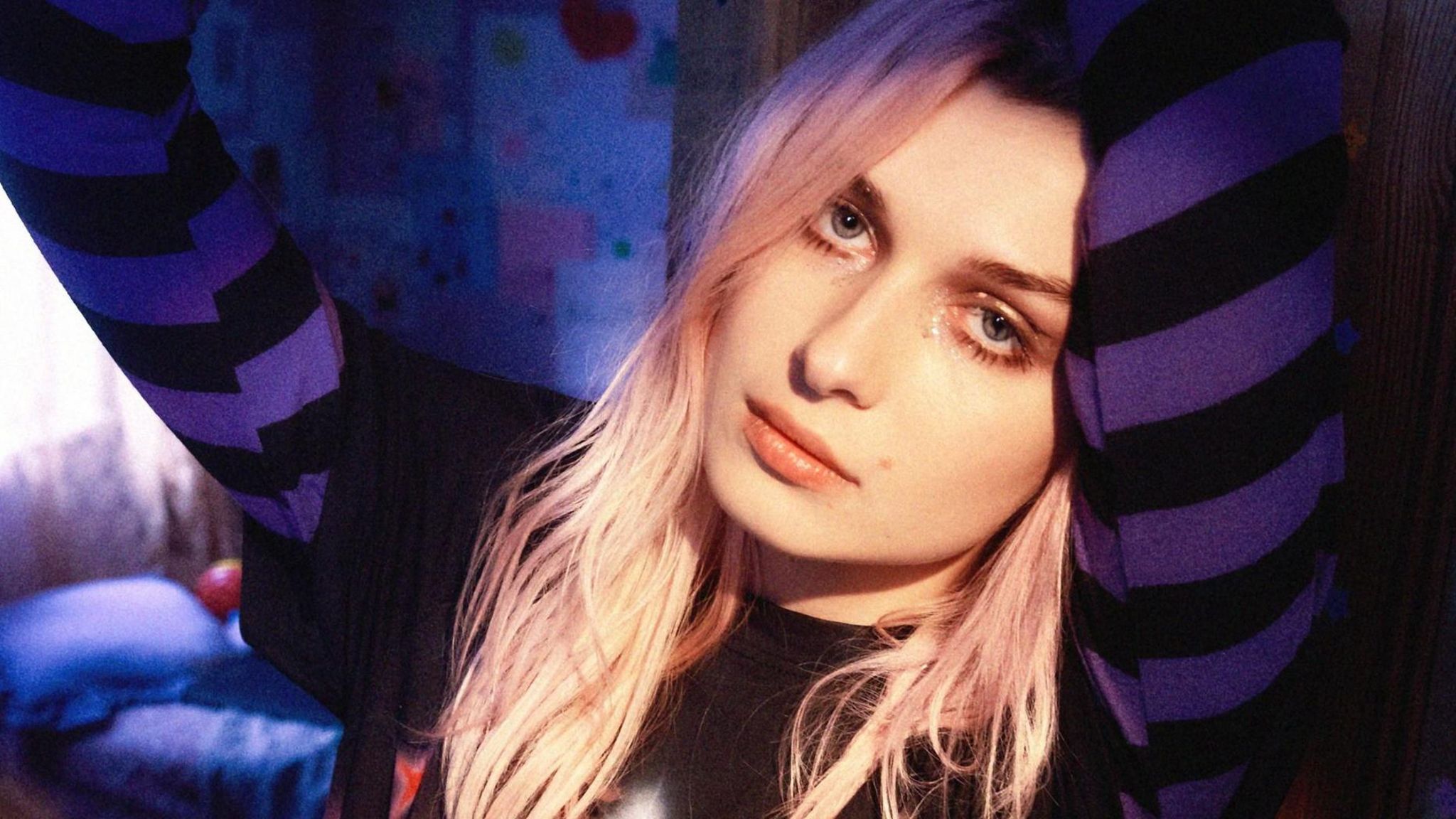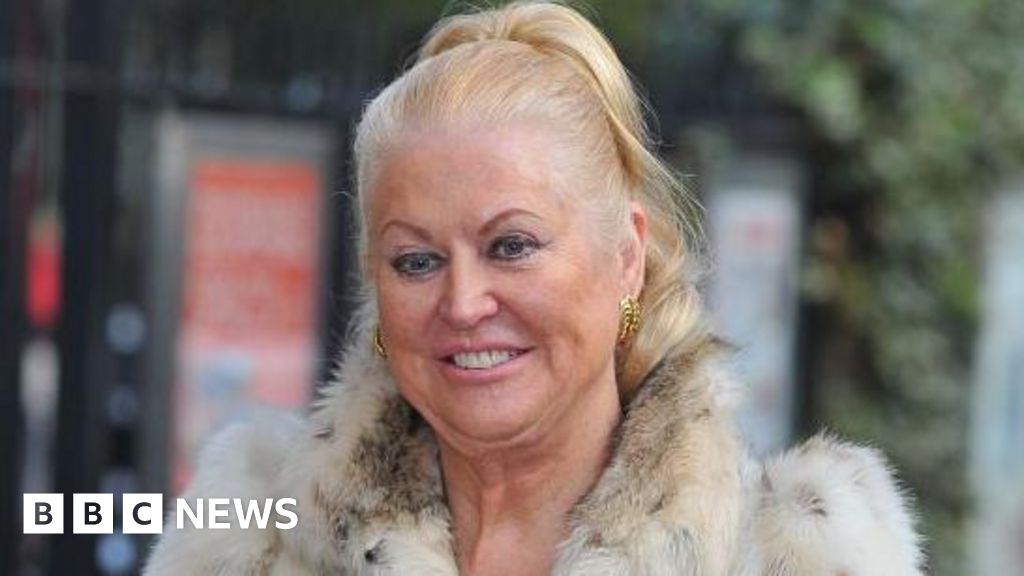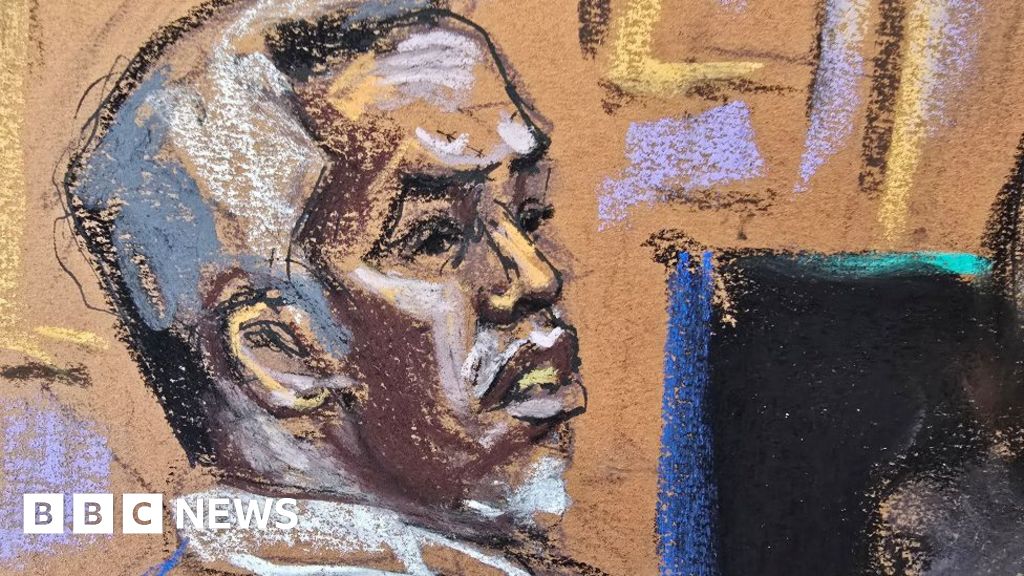ARTICLE AD BOX
 Image source, Polydor Records
Image source, Polydor Records
Baby Queen signed her record deal in the middle of lockdown and has been building her fanbase ever since
Mark Savage
BBC music correspondent
One of Baby Queen’s guitars is missing.
If you’ve ever seen her on stage, the pop star plays a custom-made hot pink Fender Stratocaster.
But when she joins the BBC on Zoom from her flat in London, there’s a blank space on the wall where the guitar would normally be.
“I’m not allowed to have it at home,” the 26-year-old confesses. “I'm hugely prone to forgetfulness and if I turned up to a gig without it, it’d be a disaster. So it’s in a lock-up in Wembley.”
It’s not just the guitar.
Her tour manager has confiscated her in-ear headphones because the last time she brought them back from a show, she woke up the next morning to find them “smashed to smithereens”.
“I was like, 'How the hell did that happen?' And it was only a few years later that I found out from my friend in America that I was on FaceTime with her and I ate them.
“I actually chewed them up like a toffee. So, no, I'm not allowed to keep those either.”
Fans of Baby Queen’s music probably won’t be surprised.
Her grunge-coated bubblegum pop is fermented with candid tales of growing up, coming out and going overboard.
Early anthem Buzzkill, external described her tendency to ruin parties by getting drunk and bursting into tears, while Medicine, external took a wry look at life on antidepressants: "My heart can't break / because my medication confiscated sex”.
Those songs earned the singer, real name Bella Latham, an underground following, and a fan club of like-minded musicians.
Courtney Love described her as “a confident lady without one bad song” and Olivia Rodrigo whisked her around Europe as a support act on her Sour tour.
Image source, Getty Images
Image caption,The elusive hot pink guitar "in action"
When we last spoke in 2021, Latham said her debut album had to be handed in “by the end of the year”. But here we are in 2023 and it’s only just arrived. So what happened?
“I wrote a scuzzy ‘90s rock album that is never gonna see the light of day,” she admits.
“So that was one reason. But ultimately, it just took a really long time to have enough great music to choose from.”
The delay had one major benefit: In 2022, Latham found a whole new audience when her music featured prominently in the hit Netflix drama Heartstopper.
Based on Alice Oseman’s graphic novels, the series charts the blossoming romance between high school students Charlie (Joe Locke) and Nick (Kit Connor), and Baby Queen formed the soundtrack to their courtship.
Latham didn’t even know about it until the first series was finished - but Oseman had played her debut EP while writing the scripts “and it became intertwined with the story she was telling”.
When the series launched, sales of songs like Want Me and Dover Beach surged by up to 500 per cent. Latham went on to write two song specifically for the show; and made her acting debut at the end of the second series.
"I got my first IMDb credit as 'prom singer!’” she laughs.
Image source, Baby Queen / Instagram
Image caption,The singer hung out with the Heartstopper cast while filming her scenes for series 2
Aside from the profile boost, the series left a big impact on the singer - who grew up in the conservative South African city of Durban, “where no-one drank and no-one had sex before 18”.
Latham was attracted to both men and women from a young age but often felt ashamed of her feelings.
“I really could have done with a show like Heartstopper,” she says.
“In my youth, queerness was never romanticised. It was a desire, an urge that couldn't be romantic. You’d think, ‘No-one can ever know about this. I'll take it to my grave.’
“And what's so beautiful about Heartstopper is that it's just a simple, happy, normal story.
“It’s not about the ‘queer best friend’ or the ‘tough lesbian rock chick’. The purpose of the show is to represent people that have felt invisible for so long.”
As an 18-year-old, Latham fled the restrictive culture of Durban and flew to London with a suitcase of demo CDs.
Turned down by every record label, she invented Baby Queen as a sort of rebellious, sardonic best friend, who had all the confidence Latham lacked.
The character allowed her to write more confrontational lyrics, dismantling Instagram culture on Internet Religion, external (sample lyric: “I'm done saving the world, so take a look at these cool shoes!”) and documenting her damaging lifestyle decisions on These Drugs.
Image source, Polydor Records
Image caption,Latham's debut album is a candid - and sometimes unflattering - account of her early 20s
On her debut album, Quarter Life Crisis, Latham is still rudderless but she’s being kinder to herself.
The opening song, We Can Be Anything, is a glistening rejection of the nihilism that characterised her early songs. And by the end of the record, she’s writing a heartfelt letter to her 17-year-old self, telling her to stop worrying.
“You’ll end up somewhere people don’t really care you kiss girls.”
That realisation is key.
The first time Latham wrote about same-sex attraction - on the single Dream Girl - she had “heart palpitations” about coming out in public. But she needn’t have worried.
“Bella, I am so proud of you,” wrote one fan under the YouTube video. “I knew Baby Queen wouldn't disappoint us on Pride Month,” added another.
Even her family approved.
“My mum heard Dream Girl for the first time a year-and-a-half ago and it's actually her favourite song on the album,” says Latham.
“We’ve worked through so much when it comes to my sexuality. She's seen how difficult it's been for me, which is something I never opened up to her about before, and we're just in a completely different place…
“But I still think she likes it better when I'm with a guy!”
Self-acceptance is new territory for the singer but, elsewhere, Quarter Life Crisis revisits familiar themes of wasted potential and arrested development.
“When I’m tying my laces / I still make two bunny ears,” she sings on 23.
This YouTube post cannot be displayed in your browser. Please enable Javascript or try a different browser.View original content on YouTube
The BBC is not responsible for the content of external sites. YouTube content may contain adverts.
Skip youtube video by BabyQueenVEVO
Allow YouTube content?
This article contains content provided by Google YouTube. We ask for your permission before anything is loaded, as they may be using cookies and other technologies. You may want to read Google’s cookie policy, external and privacy policy, external before accepting. To view this content choose ‘accept and continue’.
The BBC is not responsible for the content of external sites. YouTube content may contain adverts.
The stand-out track is I Can’t Get My S*** Together - a pulsing pop anthem where Latham’s angels and demons engage in a clever back-and-forth.
“I’m not fine lost my damn mind’s gone all wrong right.” (Try reading it with and without the text in italics.)
“I’m so glad you picked that song out!” she beams. “That call and response was so difficult to write, as was creating a sonic difference between the two parts.
“In the end, we had a whiteboard with all these, like, complex maths equations on it, but I love that song.”
Part of the problem was that, having established Baby Queen’s unique world view, it was tough live up to her own standards.
“I feel like I've written myself into a corner, sometimes,” she admits.
“The obsession with lyrics has gotten worse. Sometimes I just sit there and want to smash my skull against the wall trying to think of the words.
“But I made my bed - and now I have to sound like a genius every time I open my mouth!”
Image source, Getty Images
Image caption,Baby Queen started a headline tour of the UK in Manchester on Thursday
She’s joking, but Quarter Life Crisis contains some of the smartest pop lyrics you’ll hear in 2023.
Better still, she’s dialled down the cynicism and opened her heart.
On Obvious, Latham even confronts her decision to leave South Africa - and how, in the process, she lost someone close “before I said goodbye”.
“I get this awful feeling, late at night, that she held on for one more day in case I came home again,” she sings, her voice racked with guilt.
When she finished the album, Latham returned home for the first time in five years - but the journey raised conflicting emotions.
“You can reject where you came from, but as soon as your feet hit the tarmac, there's something about the foliage and the air that you can't deny,” she says.
“But ultimately that trip cemented the fact that there was nothing there for me; and that, as much as all these things hurt, my family is still there for me.
“So I hadn't lost as much as I thought.”
These days, her music is played on the radio in Durban, an unthinkable achievement when she was growing up. But in Latham’s mind, there’s still work to be done.
“Quarter Life Crisis isn’t my dream album and it's not my best album,” she says with a characteristic lack of filter.
“The one thing that I felt after finishing it was, 'Let me just make my next one. I know what to do now'.”
Fans in the court of the Baby Queen are already waiting.

 1 year ago
40
1 year ago
40








 English (US) ·
English (US) ·